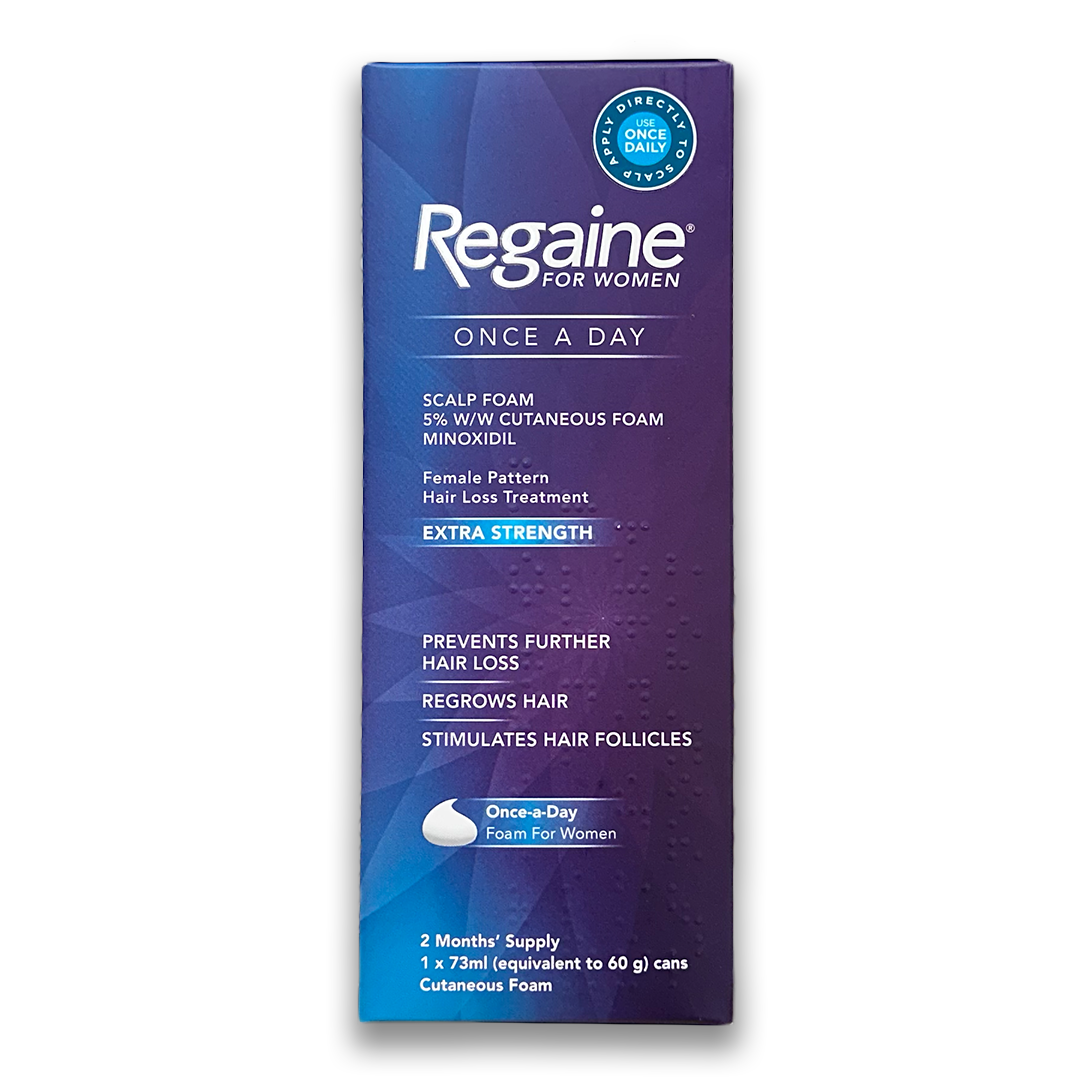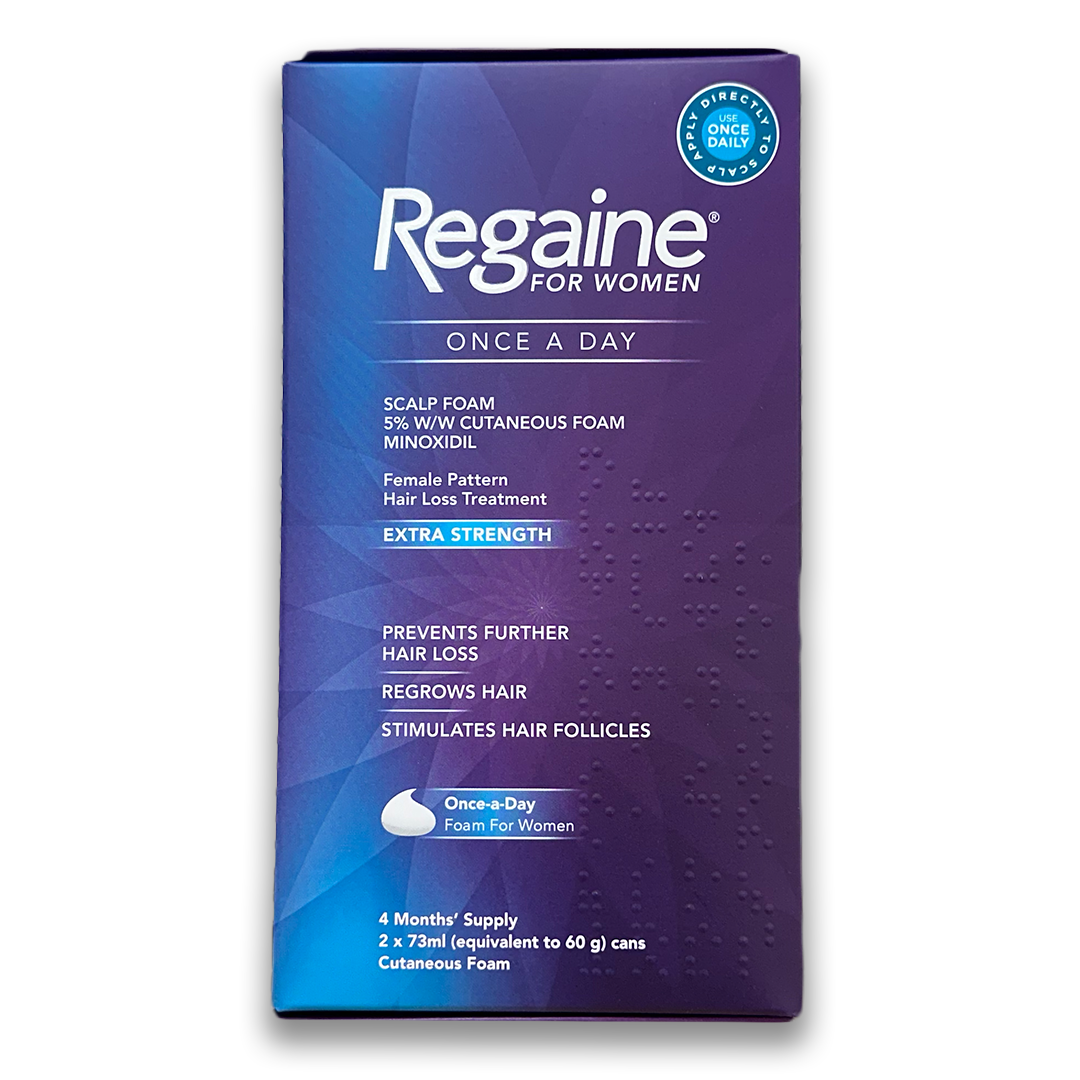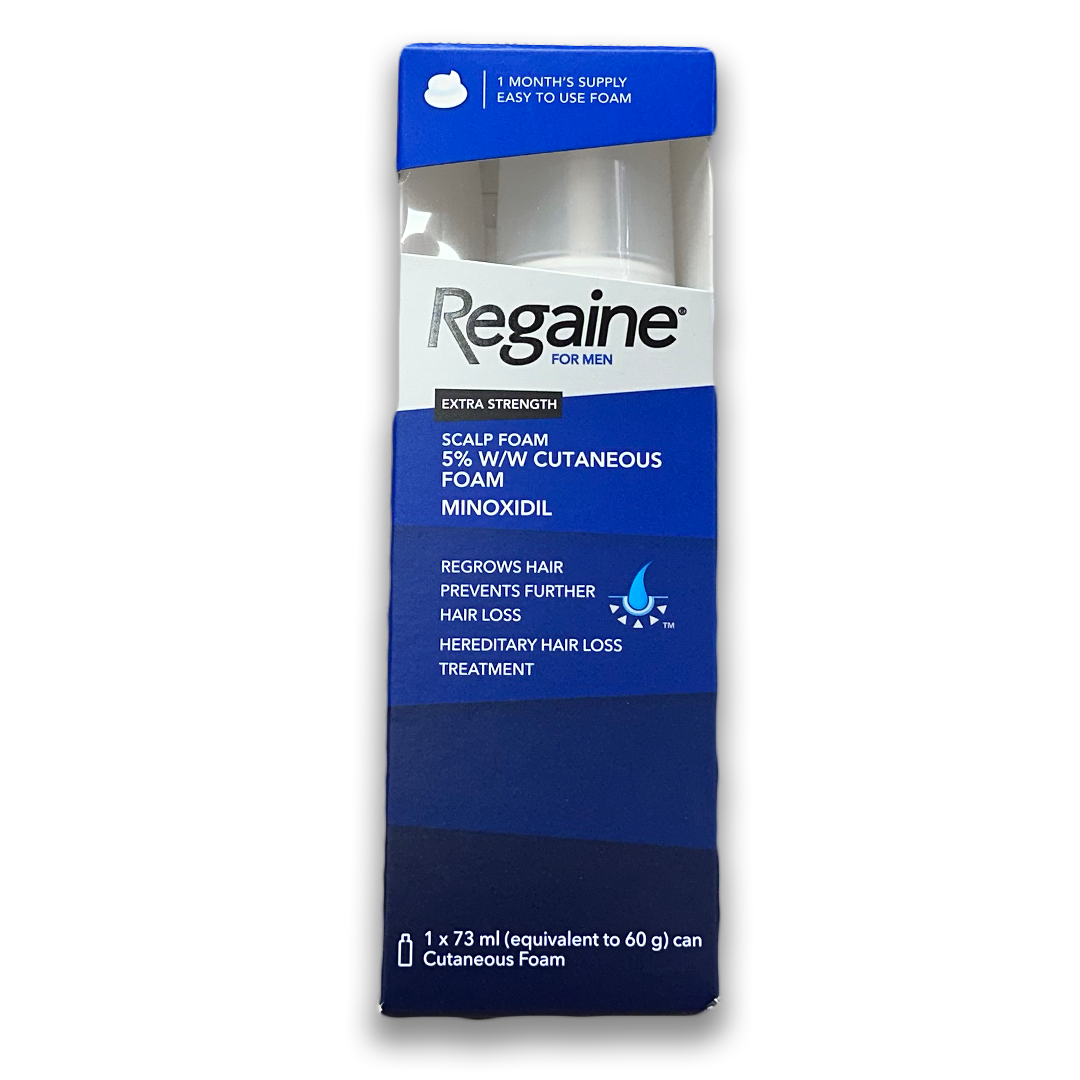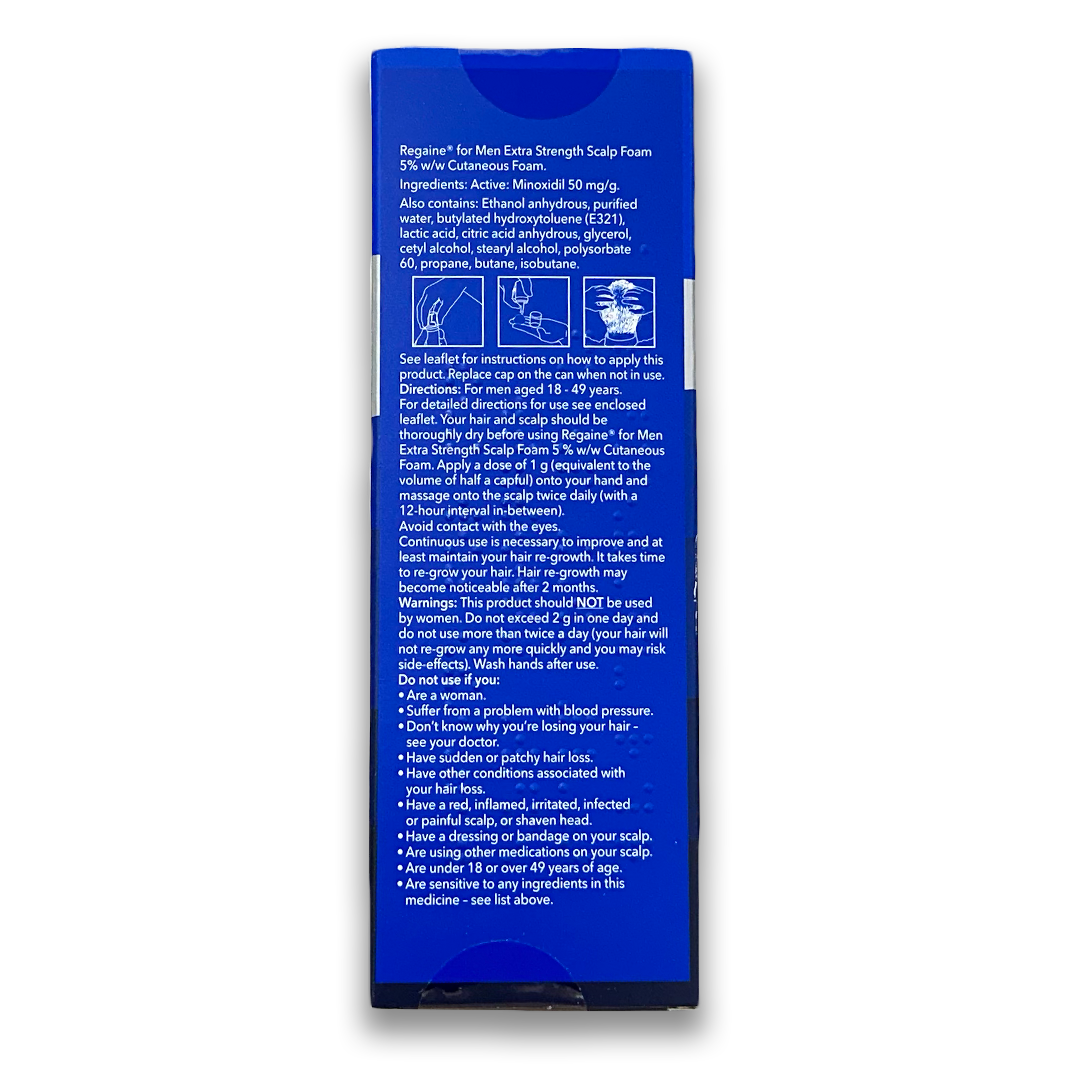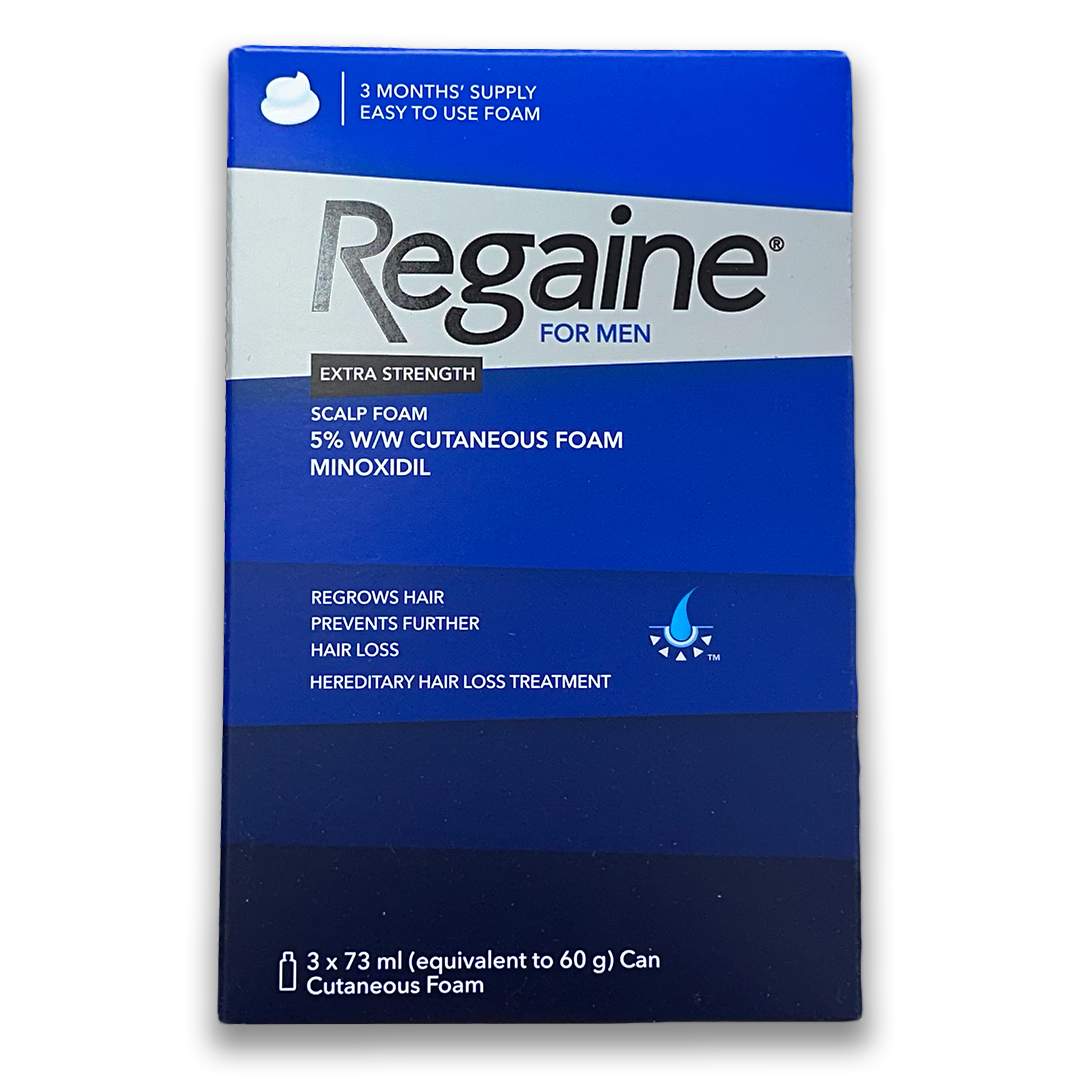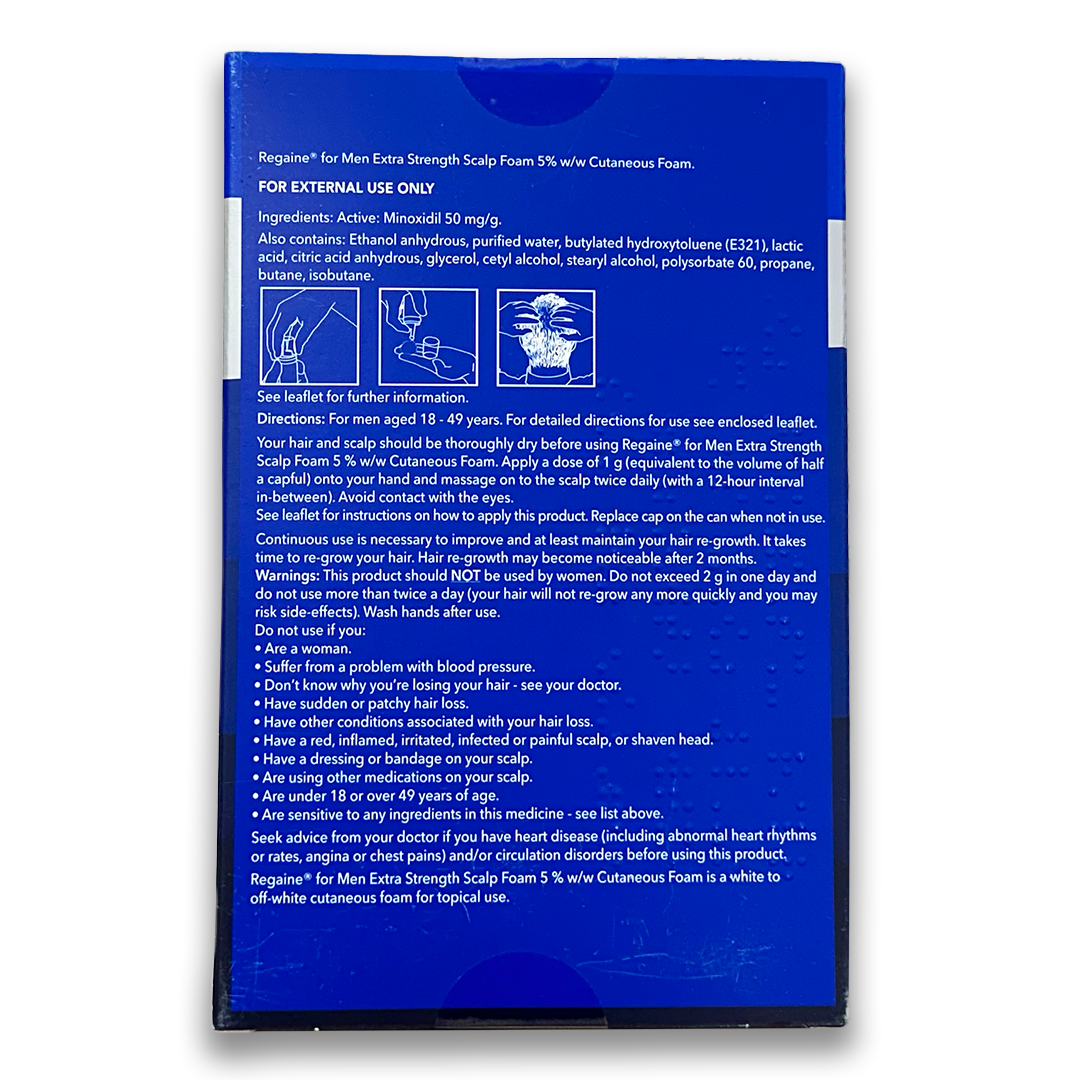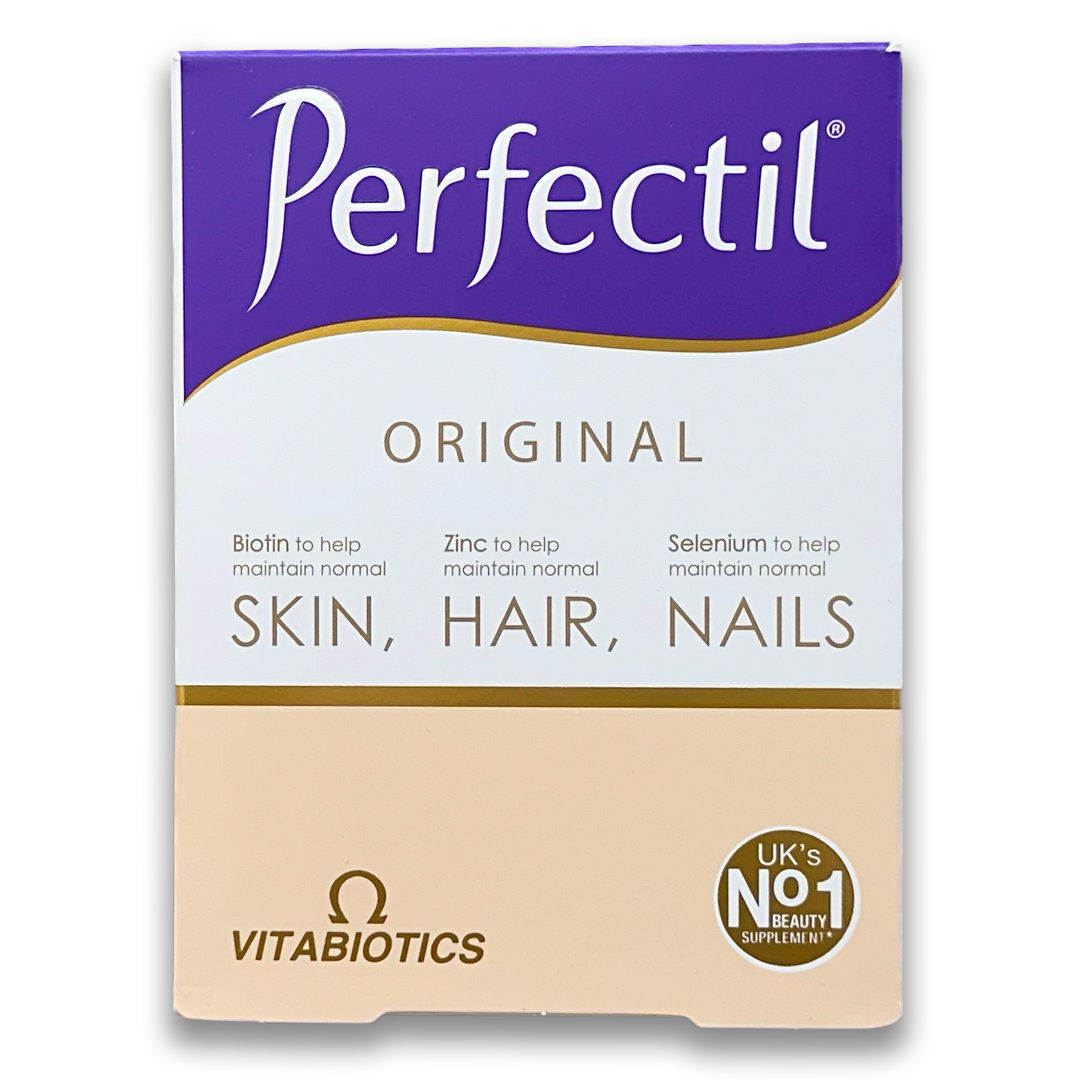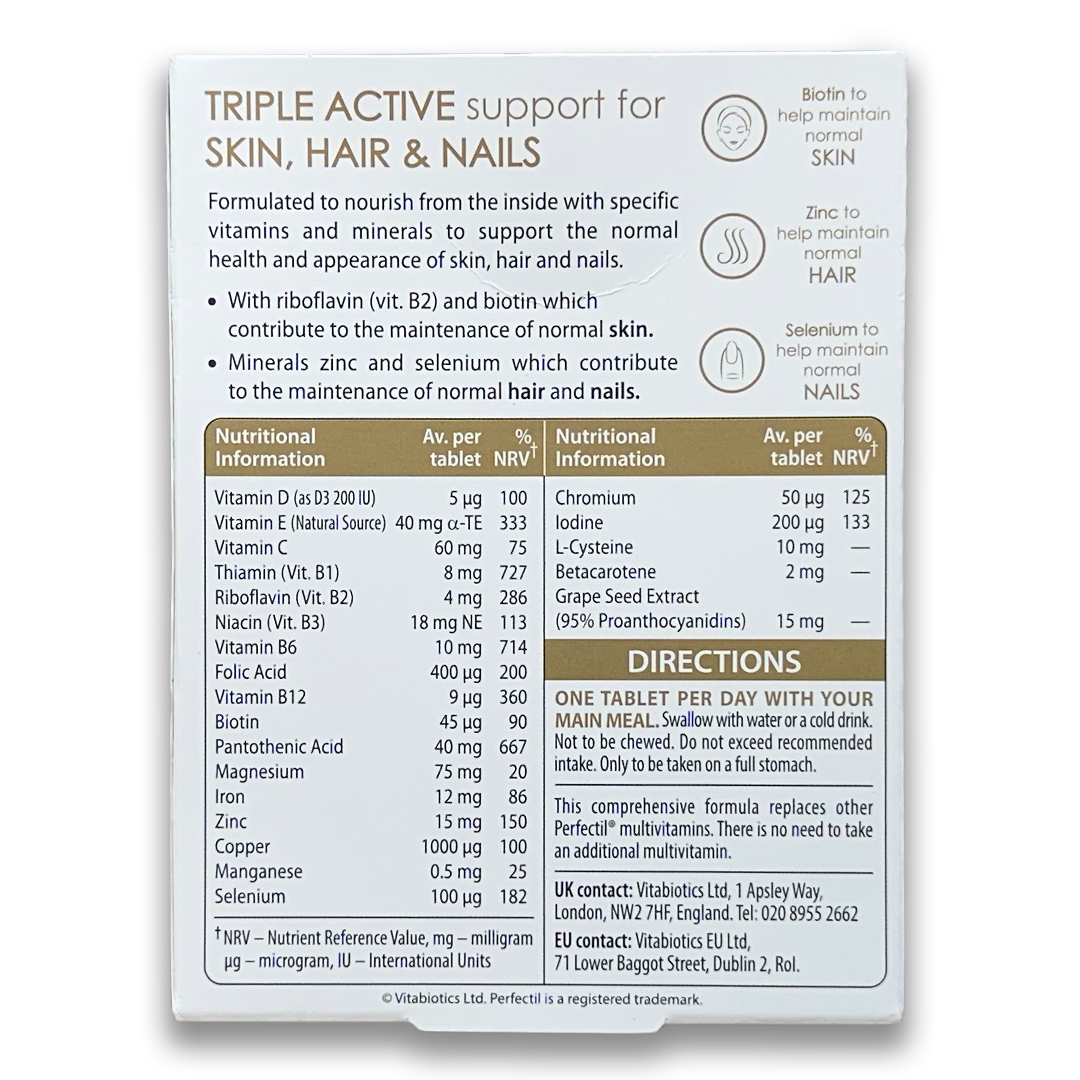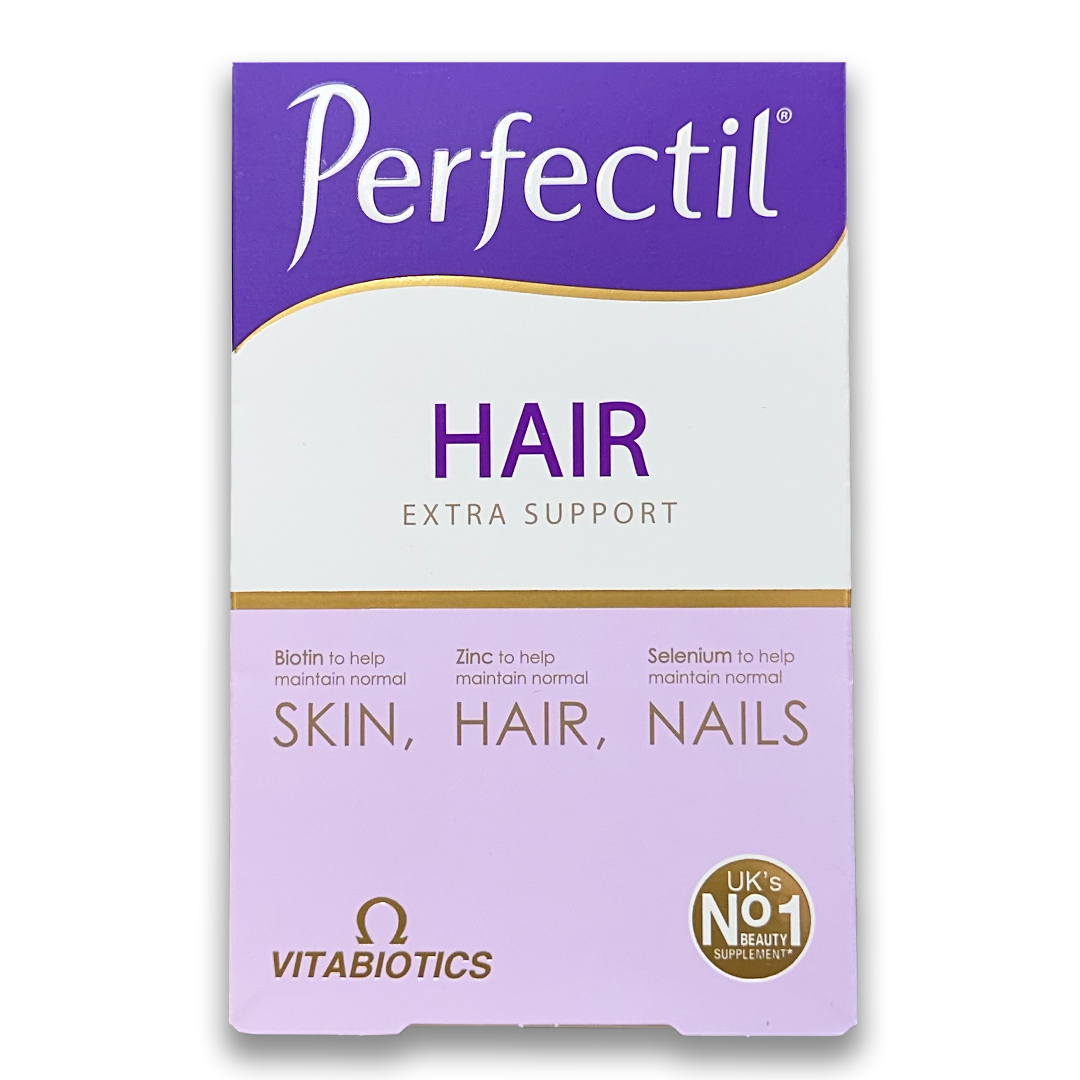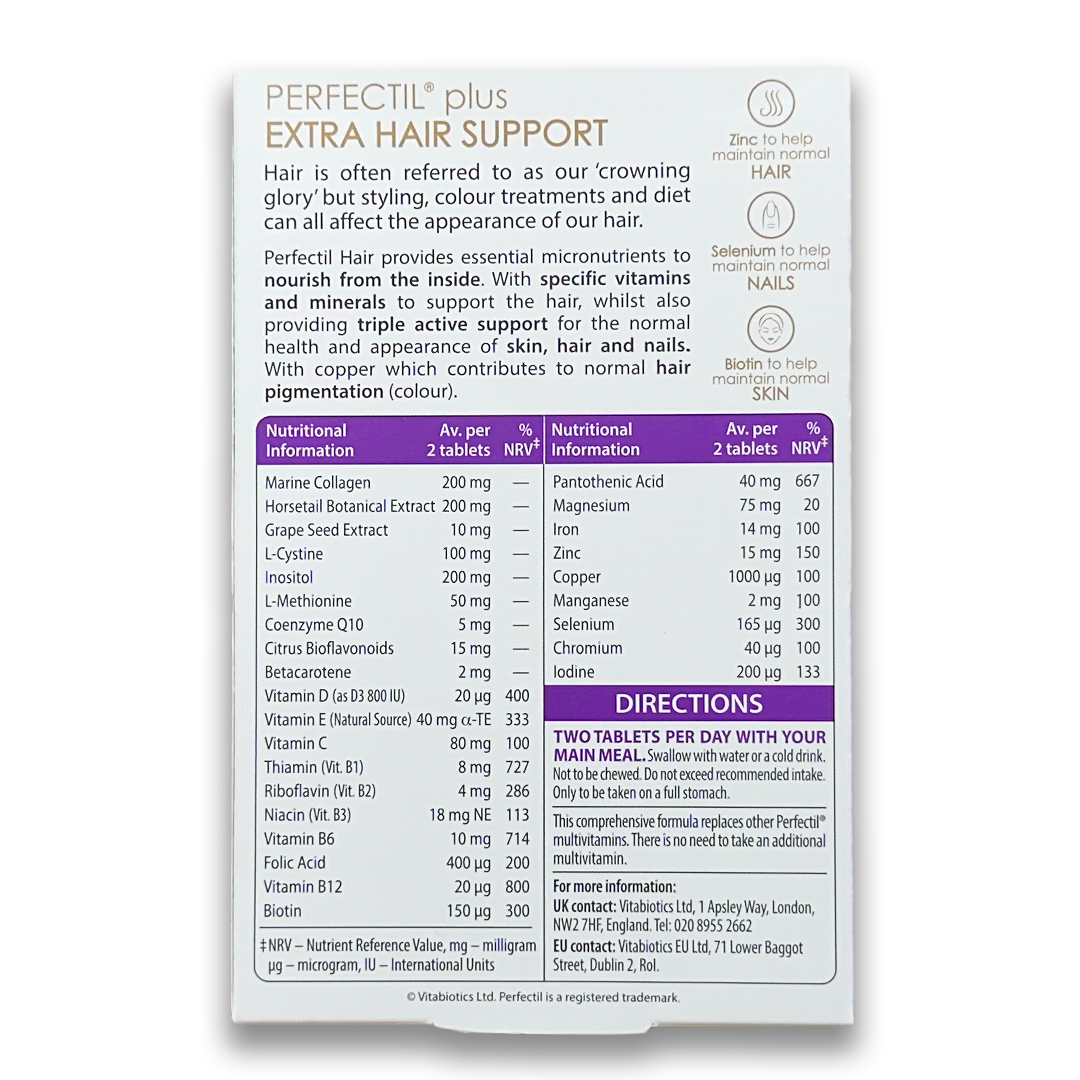Regaine for Women 5% Scalp Foam
Regaine for Men Extra Strength Foam 5%
Perfectil Original for skin, hair, nails


About Hair Loss
Causes
Diagnosis
Treatments
Prevention
Further info
FAQs
Can hair loss be reversed completely?
Are there any natural remedies that can help with hair loss?
Can hairstyles and hair products cause hair loss?
Is stress a significant factor in hair loss?
We are here to help 👋
For assistance, please contact our customer service at info@rightangled.com. We are available Monday to Friday from 8 am to 5 pm. For urgent issues, please do not use this email. Instead, call 111, or dial 999 in case of an emergency.



